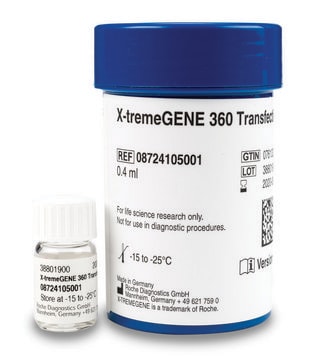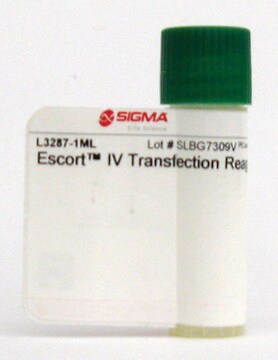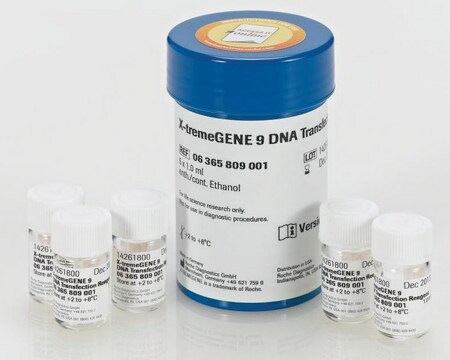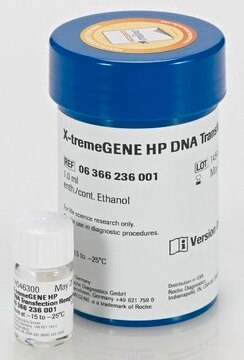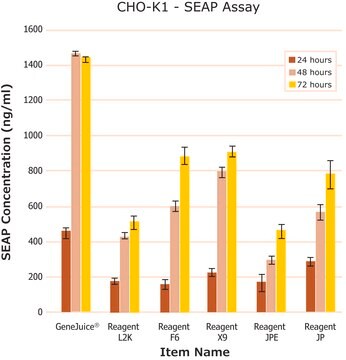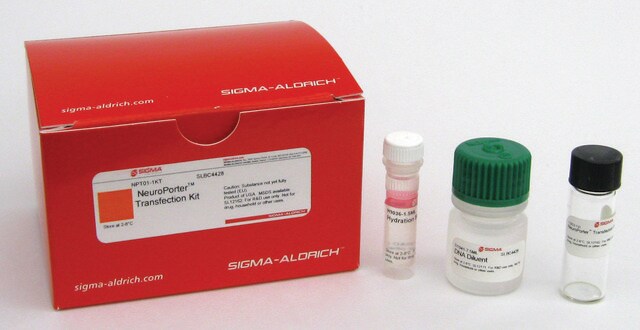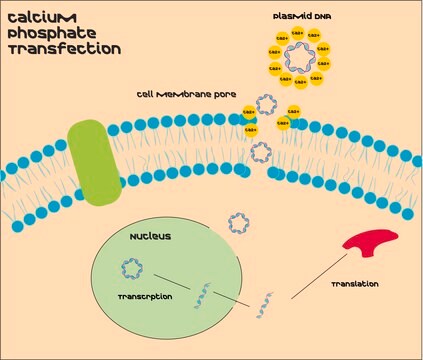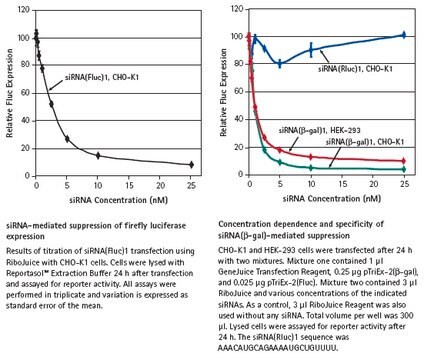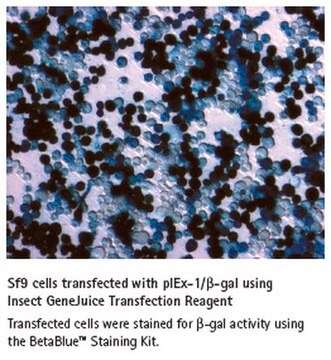L3037
Escort™ III Transfection Reagent
Lipid reagent for transfecting sensitive and primary cells
About This Item
Recommended Products
grade
for molecular biology
Quality Level
form
liquid (aqueous solution)
usage
1 mL sufficient for 250-1000 transfections
concentration
1 mg/mL
technique(s)
transfection: suitable
storage temp.
2-8°C
General description
Application
A549
C2C12 myotubes
Cardiomyocytes (rat)
COS-7
Fibroblasts (rat)
Germ cells (male rat)
Hepatocytes (rat and hamster)
HepG2
HeLa
Jurkat
Keratinocytes (human)
Myoblasts (mouse and quail)
Myocytes (mouse)
NIH3T3
PC-12
Retinal Neurons (rat)
Tracheobronchial cells (sheep)
Features and Benefits
- Suitable for stable and transient transfection
- Optimized for a wide variety of primary cells
- Low toxicity
- Compatible with both serum and serum-free transfection protocols
- Ideal for PC-12 cells
Components
1 mg/mL total lipid in water
Note the identity of the lipids used in Escort™ III is confidential.
Caution
Principle
Legal Information
related product
Storage Class Code
10 - Combustible liquids
WGK
WGK 3
Flash Point(F)
Not applicable
Flash Point(C)
Not applicable
Personal Protective Equipment
Certificates of Analysis (COA)
Search for Certificates of Analysis (COA) by entering the products Lot/Batch Number. Lot and Batch Numbers can be found on a product’s label following the words ‘Lot’ or ‘Batch’.
Already Own This Product?
Find documentation for the products that you have recently purchased in the Document Library.
Customers Also Viewed
Articles
Transfection is the introduction of DNA, RNA, or proteins into eukaryotic cells and is used in research to study and modulate gene expression. Thus, transfection techniques and protocols serve as an analytical tool that facilitates the characterization of genetic functions, protein synthesis, cell growth and development.
This brief webinar provides an overview of what transfection is and the methods that are used to introduce DNA or RNA into eukaryotic cells.
Protocols
Expert guidance on the best way to optimize your transfection experiments. Optimized protocols result in highest efficiency transfections.
The product bulletin providin detailed use protocol for easy DNA transfection.
Product manual provides detailed protocol for easy DNA transfection.
Related Content
Browse our convenient transfection reagent selection guide to match the best reagent for your specific cell line and application needs.
Our team of scientists has experience in all areas of research including Life Science, Material Science, Chemical Synthesis, Chromatography, Analytical and many others.
Contact Technical Service